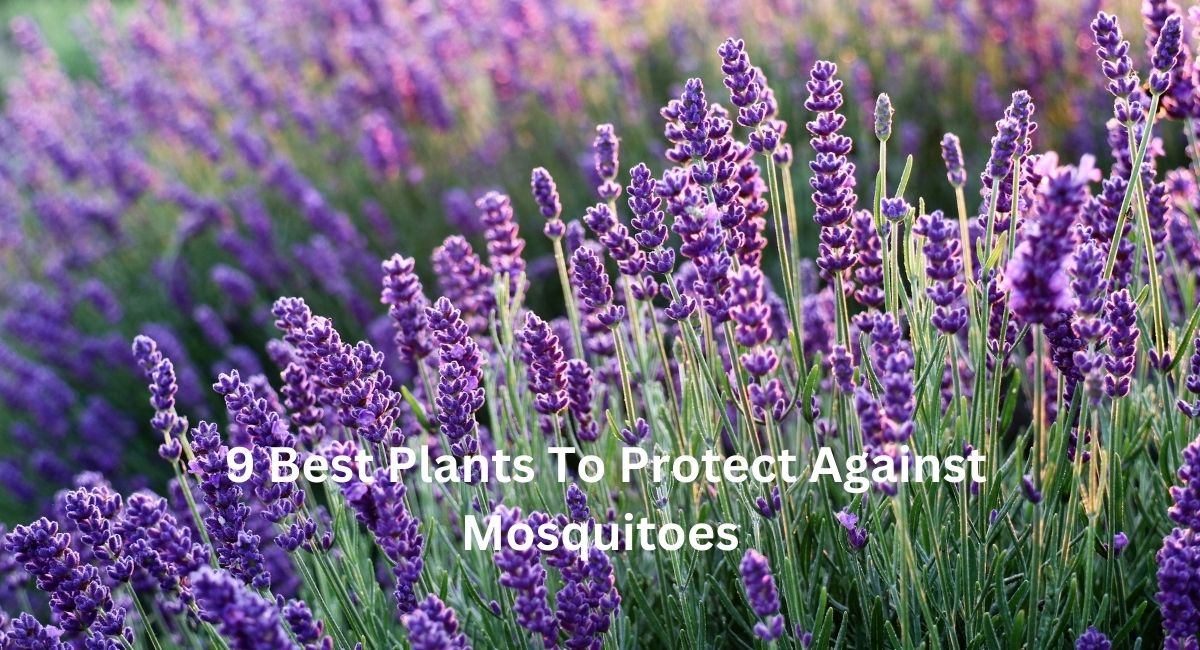Mosquitoes, often considered the bane of summer evenings and outdoor gatherings, can be effectively deterred through natural means. One of the most eco-friendly and aesthetically pleasing ways to keep these pesky insects at bay is by surrounding yourself with plants that they find unappealing.
In this article, we will explore nine plants that are not only beautiful additions to your garden or balcony but also act as natural mosquito repellents.
1. Citronella Grass (Cymbopogon nardus) This plant is perhaps the most well-known natural mosquito repellent. Citronella grass is the primary source of the citronella oil used in many mosquito-repelling candles and sprays.
The strong citrus scent is unattractive to mosquitoes. Planting it in your garden or keeping potted citronella plants around your outdoor living areas can significantly reduce the presence of mosquitoes.
2. Lavender (Lavandula) Not only is lavender known for its beautiful flowers and calming aroma, but it’s also a natural mosquito repellent. The oil and the scent deter mosquitoes. Moreover, lavender is easy to grow and maintain, making it a popular choice for both gardening beginners and enthusiasts.
3. Marigolds (Tagetes) These bright, cheerful flowers contain Pyrethrum, a compound used in many insect repellents. Planting marigolds around your home can help keep mosquitoes away, and they’re especially effective when planted near entryways and windows.
4. Basil (Ocimum basilicum) Basil is not just a staple in the kitchen; it’s also a potent mosquito repellent. The strong scent of basil leaves, particularly lemon basil and cinnamon basil, is disliked by mosquitoes. Growing basil in pots near your gathering areas can help keep the mosquitoes away.
5. Catnip (Nepeta cataria) A member of the mint family, catnip has been found to be even more effective than DEET in repelling mosquitoes. It’s a hardy plant that can grow in various conditions, but be cautious if you have cats, as they might be attracted to catnip.
6. Peppermint (Mentha piperita) Another mint family member, peppermint’s strong scent, is a powerful mosquito deterrent. Additionally, peppermint oil can soothe mosquito bites, reducing itching and inflammation.
7. Lemon Balm (Melissa officinalis) This plant, known for its lemony scent and mint family lineage, is also effective against mosquitoes. Planting lemon balm in your garden or keeping a potted plant nearby can help repel these insects.
8. Geraniums (Pelargonium) Scented geraniums, especially those with a lemon fragrance, are known to repel mosquitoes. They are best grown in pots and can be placed near mosquito entry points.
9. Rosemary (Rosmarinus officinalis) Commonly used in cooking, rosemary also serves as a mosquito repellent. Its woody scent is unappealing to mosquitoes, making it a great addition to your garden or as a potted plant on your patio.
Tips for Maximizing Efficiency
Positioning: Place these plants near areas where you spend most of your time outdoors. Doorways, windows, patios, and decks are ideal spots.
Maintenance: Regularly trimming and taking care of these plants will ensure they grow robustly and produce the scents that repel mosquitoes.
Companion Planting: Some of these plants work even better when planted together. For example, lavender and rosemary can be a potent combination.
Conclusion Incorporating these plants into your garden or outdoor space can help you enjoy your time outside without the annoyance of mosquitoes. Not only do they serve a practical purpose, but they also add beauty and variety to your space.
As with any gardening endeavor, remember to consider your local climate and soil conditions when choosing which plants to grow.
Remember: While these plants can significantly reduce the number of mosquitoes, they are not a complete solution for mosquito control. It’s always good to combine these natural methods with other preventive measures, such as eliminating standing water where mosquitoes breed.
Embrace these natural guardians, and say goodbye to those pesky mosquitoes the green way!










